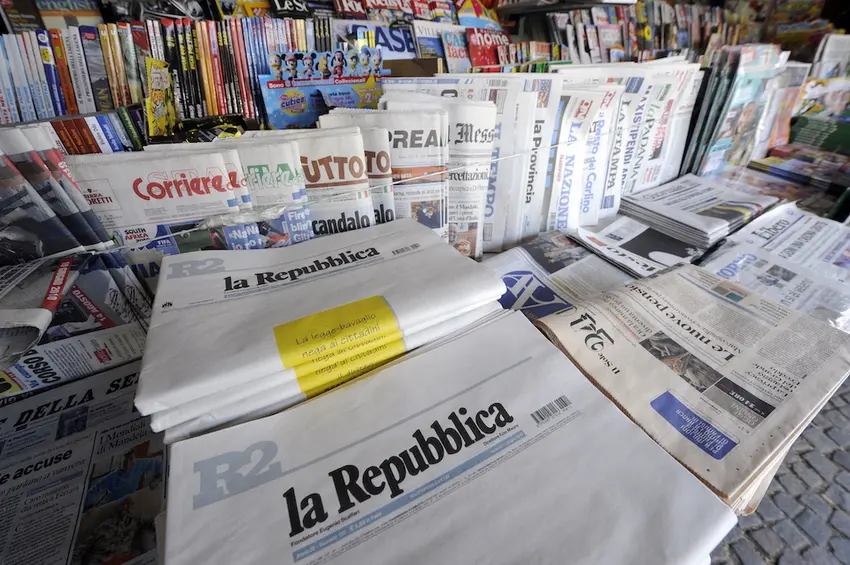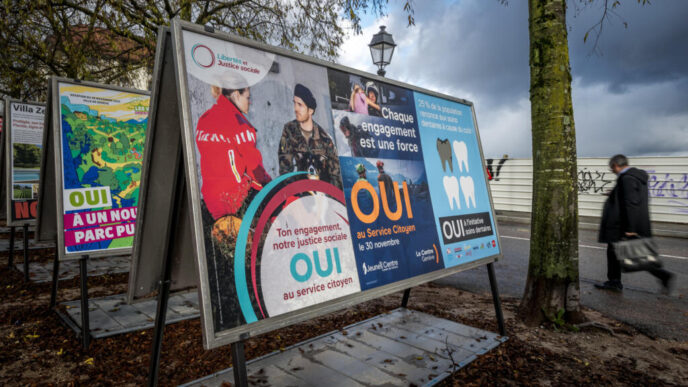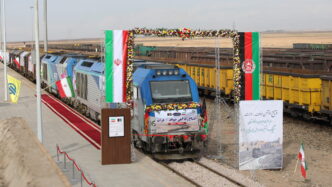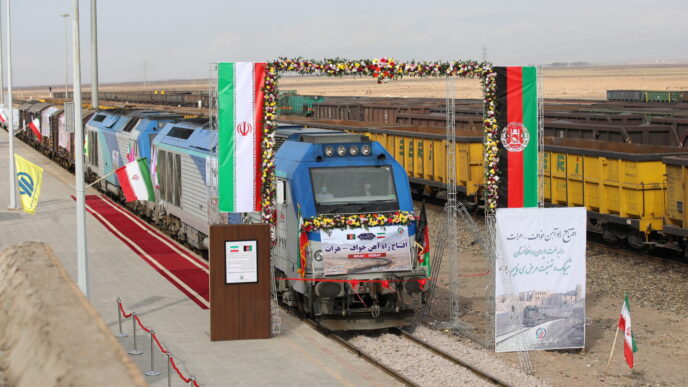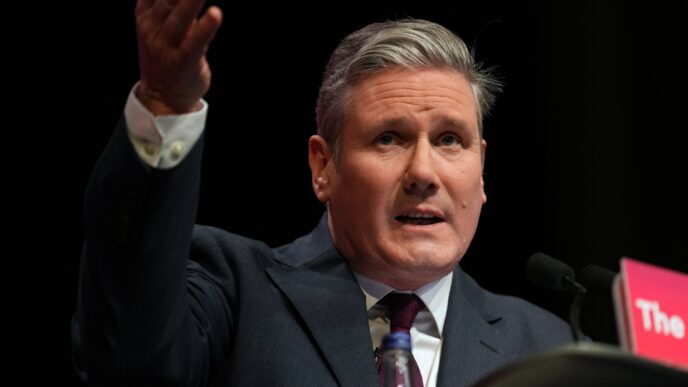Journalists across Italy went on strike on Friday, halting news production at several major outlets as long-running disputes over pay and working conditions reached a boiling point.
The protests coincided with wider industrial action involving workers in healthcare, education and transport, who are also demonstrating against the government’s latest budget.
Operations were suspended at some of Italy’s most prominent media organisations, including the websites of Corriere della Sera, La Repubblica and La Stampa, as well as news agencies ANSA and AGI.
Strike action followed the collapse of talks between unions and publishers over renewing journalists’ national labour agreement, which has not been updated for a decade.
The National Federation of the Italian Press said journalists have paid a heavy price for years of rising inflation, with real earnings falling by nearly 20 per cent over the last ten years, based on official statistics.
The union accused media groups of slashing budgets and underinvesting even as they continue to receive millions of euros in state subsidies.

Italy’s collective agreements set minimum pay and define official working conditions across industries.
Journalists’ unions argue their current contract, last renewed in 2014, is completely out of step with living costs today.
They are demanding higher base salaries, safeguards governing the use of artificial intelligence in newsrooms and improved rights for freelance reporters, who they say are increasingly exploited as stable jobs disappear.
Publishers, however, claim the industry is under extreme financial pressure, pointing to falling revenues in the print press and the upheaval caused by artificial intelligence.
According to the Italian Publishers’ Federation, income across the industry has been cut roughly in half, making it impossible to meet union demands as they stand.
The journalists’ union warned that shrinking newsrooms and declining pay are undermining media diversity and limiting the public’s access to accurate information.
While individual newsroom walkouts are not unusual in Italy, a sector-wide stoppage of this scale is rare.
The strike was part of a broader wave of industrial unrest fuelled by frustration over Prime Minister Giorgia Meloni’s budget.
Trade unions argue that wages across Italy have failed to keep pace with rising living costs and accuse the government of neglecting public services.
According to the OECD, Italy is the only European Union country where real wages have fallen since 1990, underlining the depth of the country’s long-standing wage crisis.


 Trending
Trending 

